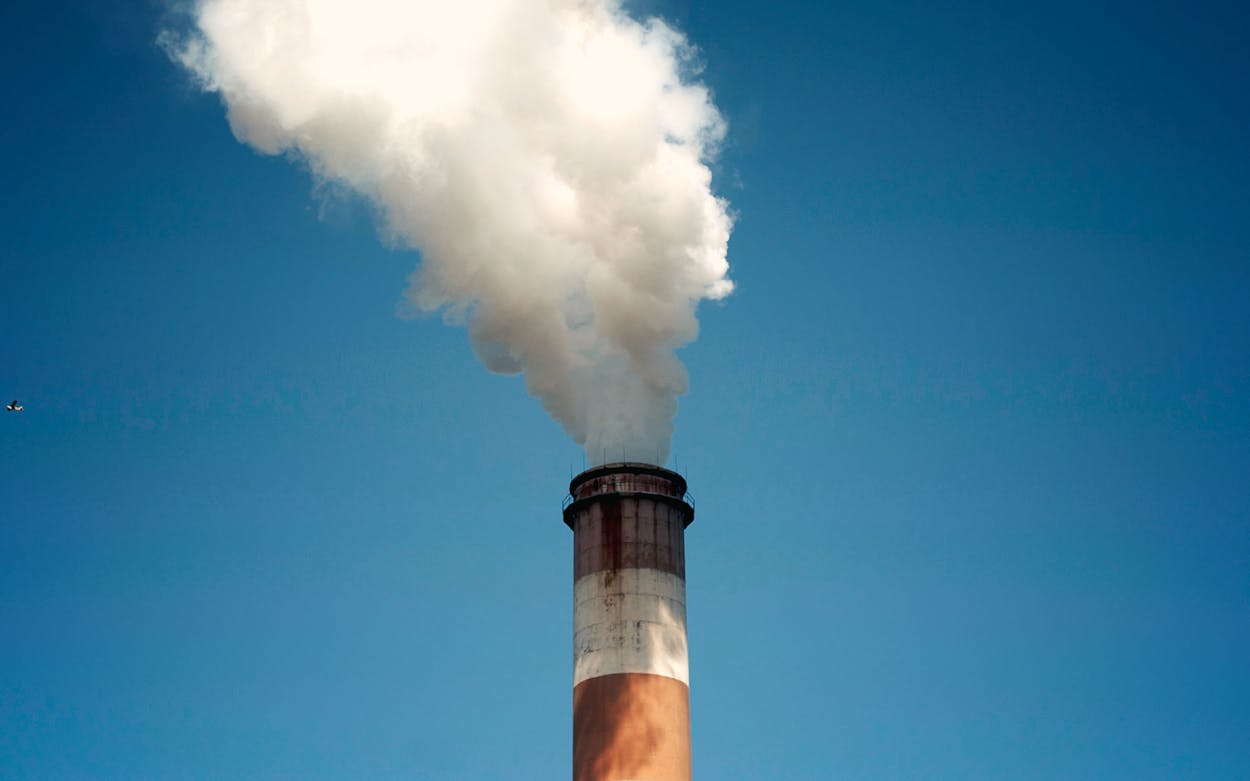Since October 6, Dallas-based Vistra Energy announced that it intends to shut down three of its five coal-fired power plants in North and Central Texas. The three plants (Monticello, Sandow, and Big Brown) have been struggling financially for several years, according to the company’s press releases.
The decisions to shut down the coal plants came on the heels of a policy proposal from the former governor of Texas, and current Secretary of Energy Rick Perry, aimed at subsidizing struggling coal plants like Vistra’s across the country. In a September 28 letter to the Federal Energy Regulatory Commission (FERC), Perry asked the commission to “protect the American people from the threat of energy outages that could result from the loss of traditional baseload capacity.”
Baseload capacity usually refers to power plants that can consistently meet the peak electricity demand at any given time of the day. As cheaper and more efficient natural gas (much of it produced in Texas) hit the markets, the need for large, coal-fed power plants to cover that baseload has declined.
That’s why coal plants are being shut down across the country, and mining jobs are disappearing faster than ice sheets in Antarctica. You’ve likely heard of this phenomenon before, even if you don’t pay attention to energy markets. It’s the War on Coal that, according to President Donald Trump, the Obama administration waged with regulations like the limits on dumping coal waste products into streams and attempts to incentivize renewable-energy generation.
But Fred Beach, the assistant director for Policy Studies at the UT Austin’s Energy Institute, says there is, in fact, no war on coal. If there is a war at all, he says, “it’s been fossil fuel against fossil fuel—and that may not make as good a news story, unfortunately, but that’s the truth of what’s happening.” Really, it boils down to simple economics: coal has been priced out in favor of cheaper natural gas, and to some degree, wind power.
“There have always been transitions from one fuel technology to another,” Beach says. “Once upon a time, all we burned was wood. Those days are long, long gone. We left whale oil behind. Once upon a time, I’m sure all the whalers in the whaling industry bemoaned the war on whales.”
Beach predicts that Perry’s coal subsidy proposal likely won’t be enforced. It’s unpopular among economists and free market advocates, let alone environmentalists. But if it does go through, it wouldn’t have been enough to save Vistra’s plants in Texas.
“Even if [the policy proposal] does go somewhere, it may have no effect,” Beach says, because Texas has its own electric grid, independent from other states and, therefore, federal interstate commerce regulations that would be enforced by FERC. “Since there’s no sale of electricity across state lines between Texas and any other state, FERC has no jurisdiction over us.”
Moreover, Beach says that coal power plants are not necessary for grid stability, as Perry and other pro-coal politicians have argued. “If you look at grid reliability, 99 percent of the reason that the grid goes down has nothing to do with power plants. It has to do with power lines.” Experts in Perry’s own Department of Energy said as much in a study, which Perry himself commissioned.
In other words, while Perry cited catastrophic events like Hurricane Harvey and Irma as the reason why coal plants should be maintained in case of emergencies, in order to provide power when sources are knocked offline, it might be more likely that a power outage occurs when a tree falls onto your power lines or a squirrel chews through them in your neighborhood.
And as for Vistra? The company may be the state’s largest miner of lignite coal, but it’s not going out of business just yet. Nearly 40 percent of its generation comes from natural gas, and this past May, it bought the soon-to-be second largest solar power plant in Texas.
- More About:
- Energy






